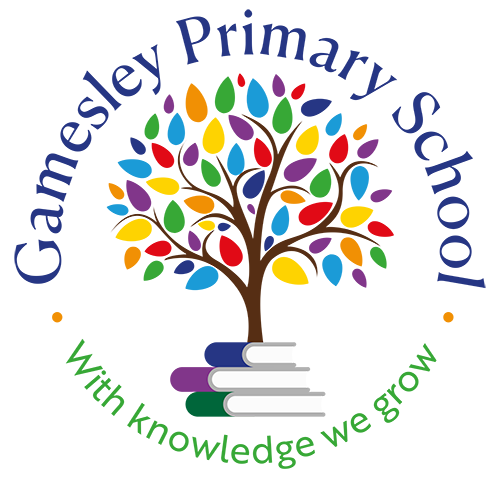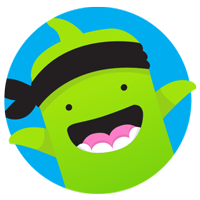Personal Social and Health Education at Gamesley Primary School.
The purpose of the PSHE curriculum is to provide all pupils with opportunities to:
- Develop confidence and responsibility and make the most of their abilities
- Prepare to play an active role as citizens through developing skills for living and valuing themselves and respecting others
- Develop a healthy lifestyle
- Contribute to their community and the wider world and becoming morally and socially responsible
- Develop good relationships and respect the differences between people.
We believe that Personal, Social, health education (PSHE) enables children to become healthy, independent and responsible members of society. We encourage our pupils to play a positive role in contributing to the life of the school and the wider community. In doing so we help develop their sense of self-worth. We teach them how society is organised and governed. We ensure that they experience the process of democracy in school through the school council. We teach them about rights, respect and responsibilities. They learn to appreciate what it means to be a positive member of a diverse multicultural society.
What is Personal, Social, Health Education?
PSHE encompasses all areas designed to promote children’s personal, social and health education. It gives children the knowledge, skills and understanding that they need to stay healthy and safe, develop worthwhile relationships, respect differences, develop independence and responsibility, and make the most of their own abilities and those of others. Additionally, children will come to appreciate difference and diversity.
We aim to cover the following core themes as set out in the Jigsaw programme of Study, which is explored in depth below.
Puzzle 1: Being Me in My World
- To develop and maintain a variety of healthy relationships, within a range of social/cultural contexts
- About managing change, including transition and loss
- To celebrate self and reflect on positives.
Puzzle 2: Celebrating Difference
- To respect equality and diversity in relationships.
- About respect for self and others and the importance of responsible behaviours and actions
- About rights and responsibilities as members of families, other groups and ultimately as citizens
- About different groups and communities
- To respect equality and to be a productive member of a diverse community
Puzzle 3: Dreams and Goals
- To plan steps to an achievable goal.
- About understanding that some dreams may not come true.
- To cope with failure
- To build resilience
Puzzle 4: Healthy Me
- What is meant by a healthy lifestyle?
- To maintain physical, mental and emotional health and wellbeing
- To manage risks to physical and emotional health and wellbeing
- Ways of keeping physically and emotionally safe
- To make informed choices about health and wellbeing and to recognise sources of help with this
- To respond in an emergency
- To identify different influences on health and wellbeing
Puzzle 5: Relationships
- To recognise and manage emotions within a range of relationships
- To recognise risky or negative relationships including all forms of bullying and abuse
- To respond to risky or negative relationships and ask for help
Puzzle 6: Changing Me
- About the importance of respecting and protecting the environment
- About where money comes from, keeping it safe and the importance of managing it effectively
- About puberty and body changes.
- A basic understanding of enterprise.
What does our Relationships and Sex Education Curiculum Include?
RSE is lifelong learning about physical, moral and emotional development. It is about the understanding of the importance of marriage for family life, stable and loving relationships, respect, love and care. It is also about the teaching of sex, sexuality and sexual health. It is not about the promotion of sexual orientation or sexual activity – this would be inappropriate teaching.
Attitudes and Values
- learning the importance of values and individual conscience
- learning the value of stable and loving relationships, whether in the context of marriage, civil partnership or other family models, for the nurture of children
- learning about the value of respect, love and care
- exploring, considering and understanding moral dilemmas
- learning to respect and value difference and diversity including diverse family models, genders and sexualities
- learning about the rights and responsibilities to oneself and others
- understanding responsibility for one’s own safety and that of others both in the real and digital world
- understanding the importance of equality concerning genders and sexuality
- learning that violence and coercion in relationships is unacceptable
Skills
- learning to recognise one’s own emotions and those of others
- learning to manage emotions and relationships with confidence and sensitivity
- learning to manage change
- developing self-respect
- learning how to use appropriate language in the real and the digital world
- learning to be empathetic to others
- learning to make choices based on an understanding of difference and with an absence of prejudice
- learning how to identify risk in relationships both in the real and digital world
- learning how to recognise and avoid exploitation and abuse
- learning how to keep oneself safe and how to extricate oneself from an unsafe situation
- developing critical thinking
- learning to make and carry out informed decisions
- developing decision-making skills both in the real and the digital world
- developing an appreciation of the consequences of choices both in the real and digital world
- learning to manage conflict and developing negotiation skills
- learning how to cope with and resisting unwelcome peer pressure
- learning to communicate openly and respectfully about relationships and sex
- learning how to ask for help and accessing advice/services
Knowledge and Understanding
- learning about and understanding emotional and physical development at appropriate stages
- learning about the impact of stereotyping and negative language
- learning about and understanding reproduction and sexual health
- learning about sexuality and understanding differences
- learning about a safe and healthy lifestyle based on accurate information
- understanding the positive benefits of loving, rewarding and responsible relationships
- learning how to resist unwelcome pressures to be sexually active both in the real and digital world
- learning protective behaviours
- learning how to avoid unplanned pregnancy
- learning about pregnancy and the choices available knowing and understanding legal aspects of sexual behaviour
- understanding the nature of consent
- learning about consent in the law
- knowing where to seek appropriate help and advice
| Year group | Focus of lessons |
| Reception | · Making relationships with friends and familiar adults
· Self-confidence and self-awareness · Managing feelings and behaviour Key vocabulary General names of body parts,(not sexual parts) |
| Year 1 | · I am starting to understand the life cycles of animals and humans
· I can tell you some things about me that have changed and some things about me that have stayed the same · I can tell you how my body has changed since I was a baby · I can identify the parts of the body that make boys different to girls and can use the correct names for these. · I can describe changes that have happened in my life Key vocabulary Life cycle Baby Adulthood Mature Change Penis Testicles Vagina |
| Year 2 | · I can recognise cycles of life in nature
· I can tell you about the natural process of growing from young to old · I can recognise how my body has changed since being a baby and where I am on the continuum from young to old · I can recognise the physical differences between boys and girls · I understand there are different types of touches and can tell you the ones I like and don’t like Key vocabulary Life cycle Male Female Penis Testicles Vagina Private Acceptable Unacceptable Comfortable |
| Year 3 | · I understand that in animals and humans, lots of changes happen between conception and growing up and that it is usually the female that has the baby
· I understand how babies live and grow in the mother and the terms uterus and womb. · I understand what a baby needs to live and grow · I understand that boys’ and girls’ bodies change so that when they grow up, their bodies can make babies · I can start to recognise stereotypical ideas I might have about parenting and family roles Key vocabulary Uterus Womb Nutrients Love Affection Care Puberty Testicles Sperm Penis Ovaries Egg Womb Vagina |
| Year 4 | · I understand that some of my personal characteristics have come from my birth parents because I am made from the joining of their egg and sperm
· I can correctly label the internal and external parts of male and female bodies that are necessary for making a baby · I can describe how a girl’s body changes in order for her to be able to have babies when she is an adult, and that menstruation (having periods) is a natural part of this · I know how the circle of change works and can apply it to changes I want to make in my life · I can identify changes that have been and may continue to be outside of my control, that I learnt to accept Vocabulary Unique Characteristics Sperm Egg Penis Testicles Vagina Womb Ovaries Making love Fertilise Reproduction Puberty Menstruation Periods |
| Year 5 | · I am aware of my own self-image and how my body image fits into that
· I can explain how a girl’s body changes during puberty and understand the importance of looking after yourself physically and emotionally · I can describe how boys’ and girls’ bodies change during puberty · I understand that sexual intercourse can lead to conception and that is how babies are usually made · I also understand that sometimes people need IVF to help them have a baby · I can identify what I am looking forward to about becoming a teenager and understand this brings growing responsibilities (age of consent) Vocabulary Puberty Relationships Menstruation Conception Periods Making love Sanitary towels/pads Sexual intercourse Tampons Fallopian tubes Ovary Fertilisation Vagina Pregnancy Womb/uterus Embryo Sperm Umbilical cord Semen Contraception Testicles/testes Fertility treatment Erection Teenager Ejaculation Milestone Wet dream Perceptions Larynx Puberty Facial hair Responsibilities Growth spurt Hormones |
| Year 6 | · I am aware of my own self-image and how my body image fits into that
· I can explain how a girl’s body changes during puberty and understand the importance of looking after yourself physically and emotionally · I can ask the questions I need answered about changes during puberty · I can describe how a baby develops from conception through the nine months of pregnancy and how it is born · I understand how being physically attracted to someone changes the nature of the relationship · I can identify what I am looking forward to and what worries me about the transition to secondary school Key vocabulary Self-image Self-esteem Foetus Contractions Grown up Real self Celebrity Placenta Cervix Attraction Trust Respect Umbilical cord Midwife Relationships Pregnancy Embryo Labour Independence Friends Pubic Hair Voice breaks Menstruation Semen Growing taller Hips widen Erection Tampon Breasts Hormones Wet dream Ovulation Masturbation Sanitary towel Clitoris Testicles Sperm Underarm hair Penis Feeling moody Vagina Womb Fallopian tube |
Please click here to view our policy on Primary Relationships and Health Education Policy
Please click here to view our Relationships Education Letter to Parents
Please click here to view our request to withdraw child from sex education lessons.

